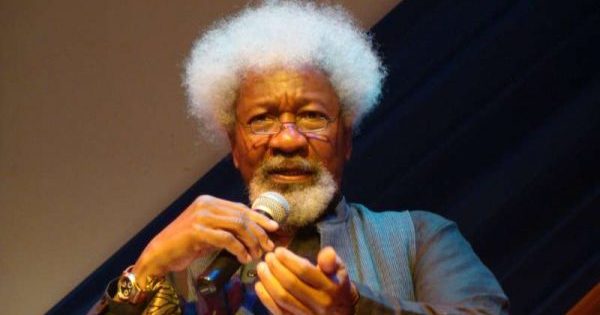News
Soyinka speaks on dangers of passing Hate Speech Bill

Professor Wole Soyinka on Monday maintained his stand against the Hate Speech Bill and pointed out some of the dangers associated with its passage into law.
The Nobel Laureate spoke at a summit to mark the United Nations (UN) International Anti- Corruption Day in Abuja, an event organised by the Economic and Financial Crimes Commission (EFCC) and agencies under the Ministry of Transportation.
He said, “We all are disgusted with fake news, hate news, destabilising and toxic news, but let’s ask ourselves seriously what we think we are doing if we start chopping off the heads of those whom we considered to have offended our sensibilities, either as individuals or as institutions, especially if such actions terminate the possibility of free expression, even though sometimes there is an abuse of that expression.
“I stand here as one of those individuals who have been most affected by hate news, fake news, even to the extent that I had my identity stolen, abused and used in all kinds of ways, against what I really believe in.
“But I’ll be the last person to support any idea of terminating a recourse to information simply because some people abuse the means of that and the answer to that is jail people or put them before a firing squad.
“When you take a combination, therefore, of a major principle, almost core security institution, you take that side by side with that of a legislative house, it curtails the possibility of an opened society and looks as if we have all been put in a slave plantation.”
He said security agencies as the Department of State Services (DSS) for instance, if accused tomorrow of corruption would “say this is hate speech, off with its head and then maybe when we get to court and the judge grants the poor felon a temporary reprieve to bail, any security agency can then jump in the court, re-arrest the felon, break into the citadel of justice and say ‘we are re-arresting this individual because he’s indulged in hate speech.”
He then warned, “Let us be careful in our responses to failures of society and make sure that we are not cutting off our noses to spite our faces.”
According to Soyinka, it would be overkill for the National Assembly to propose capital punishment or take the right to free speech away from citizens because some individuals err by abusing the right.
Further speaking on revolution, he said it could be referred to as a bid to rid society of corruption, adding that the fight against corruption is a revolution in itself.
READ ALSO: Omo-Agege introduces new electoral bill
Soyinka, who was apparently alluding to the case of Omoyele Sowore, who is being prosecuted for planning a protest tagged RevolutionNow said:
“Am I going to be thrown in jail right away because the word revolution frightens some people?
“Go through history. Cuba, Soviet Union, China, Zimbabwe and so on, anytime there is the mention of the word revolution, one of the reasons cited is the commitment towards the eradication of corruption.
“So really revolution, whether revolution now or soon or next or in the future, is always tied up with what is rotten in the society, to which we give the general name of corruption and this is not a mere generalised statement.”
The Nobel laureate, also called on the Federal Government to publicly release the report of the investigation to the murder of a former Attorney General of the Federation, Chief Bola Ige.
Soyinka, who attributed the unresolved murder cases in Nigeria to corrupt forces, called on President Muhammadu Buhari to make public the report he ordered into the murder of Ige, who was killed in his house in Ibdan in December 2001.
He said: “We have a phenomenon of unsolved murders and we know for a fact that some of them are the result of corrupt forces. A notorious example: A former attorney-general and minister of justice in the country, Bola Ige, was assassinated in his bedroom. It wasn’t a political affair, political rivalry and contestation.
“He was killed, you know, by the forces of corruption and so this compels one to ask what has happened to the investigation ordered by the President of the country into those high-profile murders.
“If we do not solve some of these murders, we cannot get into the heart, into the core of the corruption in this country and this involves also the authorised and constitutional agency of open society such as the judiciary.”
Join the conversation
Support Ripples Nigeria, hold up solutions journalism
Balanced, fearless journalism driven by data comes at huge financial costs.
As a media platform, we hold leadership accountable and will not trade the right to press freedom and free speech for a piece of cake.
If you like what we do, and are ready to uphold solutions journalism, kindly donate to the Ripples Nigeria cause.
Your support would help to ensure that citizens and institutions continue to have free access to credible and reliable information for societal development.
























